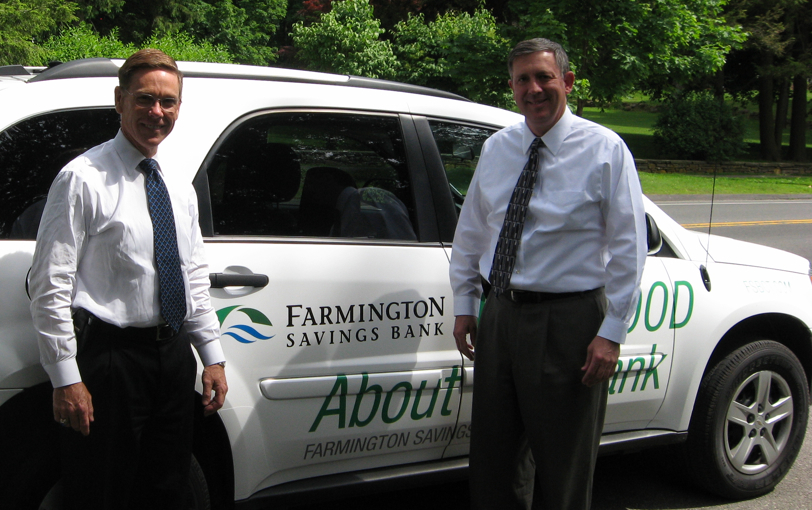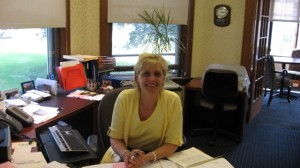
People make a difference.
Since the economic downturn, all banks, including community banks, have been painted with the same broad brush as the Wall Street banks.
But there is a difference.
Community banks such as Farmington Savings Bank (FSB) understand that they are stewards of customer trust.
“We know who our customers are, we call people by name,” aid John Patrick, FSB chairman, president and CEO. “That means we really try to be a partner with them for their financial services and we know their requirements. As people joing our banking community and get to know us, I think they feel comfortable with that they can talk to me, the bank president. I’m right here.”
Patrick answers his own telephone (if he is not with a client.) He believes in fuel-efficient transportation, too, hence the company car is a prime example.
He’s been in the banking profession since 1979. A core credo: “don’t forget your roots, don’t forget where you came from.”
“At the end of the day we’re successful because the community supports us,” he noted. “It is incumbent upon us to give back to our community. That means to make sure we’re taking the deposits that we have, and turning them into good loans within our marketplace, investing in economic growth on the commercial side and for consumers.”
As a mutual savings bank, it is regulated by the State of Connecticut and the FDIC. It has more than $1 billion in assets.Through May of 2009, deposits in the bank are up more than $220 million.
“We offer very competitive products and services,” said Patrick, who believes there is “what we call a flight to safety whe it comes to people investing their money.”
“People are more cognizant of the financial condition of their bank, and less involved in investing in alternative areas of banks such as mutual funds and the stock market.”
 Serving The Valley and Central Connecticut
Serving The Valley and Central Connecticut
The FSB community stretches beyond Farmington, with 12 offices throughout the Farmington River Valley and central Connecticut. The bank plans to consolidate several corporate divisions in a 53,000-square-foot office building at 1 Farm Glen Blvd. in Farmington as its headquarters.
The business philanthropy extends beyond Farmington. That support in the past years totals some half million dollars in donations and contributions to the community.
“Our employees are engaged and involved in many non-profit organizations throughout central Connecticut and try to provide their expertise to boards and non-profits, from the human capital prospective. We believe that you need to be active in our communities. it’s a company’s tradition that goes back to 1851.”
FSB is also an active contributor to the greater Hartford community through its FSB Foundation, which has donated $3 million to charitable causes.
“Banks in our region, especially in the Connecticut marketplace, are in relatively good shape,” he said. “We have liquidity and money to lend. The number of companies available to take new lending opportunities are less than what they were before. However, last year we did more in residential first mortgages than we ever did in the history of the bank.”
“That’s not to say we don’t have problems. The current economic recession that we’re all in today is very deep and will be here for awhile. I think we’re weathering the storm better than most.”
FSB continues to remain on a trend of putting new loans on the books at the bank.
“We are enhancing and building our commercial lending capabilities and have a very good pipeline of commercial loans in the marketplace,” he said. “We are externally focused and can be because of the strong capital base that we have. That means we can grow the bank organically – deposits from the people within the community are invested – not in securities, not on Wall Street – but in loans to small businesses and consumers in the marketplace. ”
From a planning perspective, Patrick anticipates the region will come out of the recession in the fourth quarter of 2010.
“Connecticut did not grow as rapidly as many of the other parts of the country during the last economic upturn; the state was slower to enter the recession than in other parts of the country, unless there is some dramatic event in the world. Connecticut lives in a global economy.”
———–
Resource: For more information, visit www.fsbct.com.